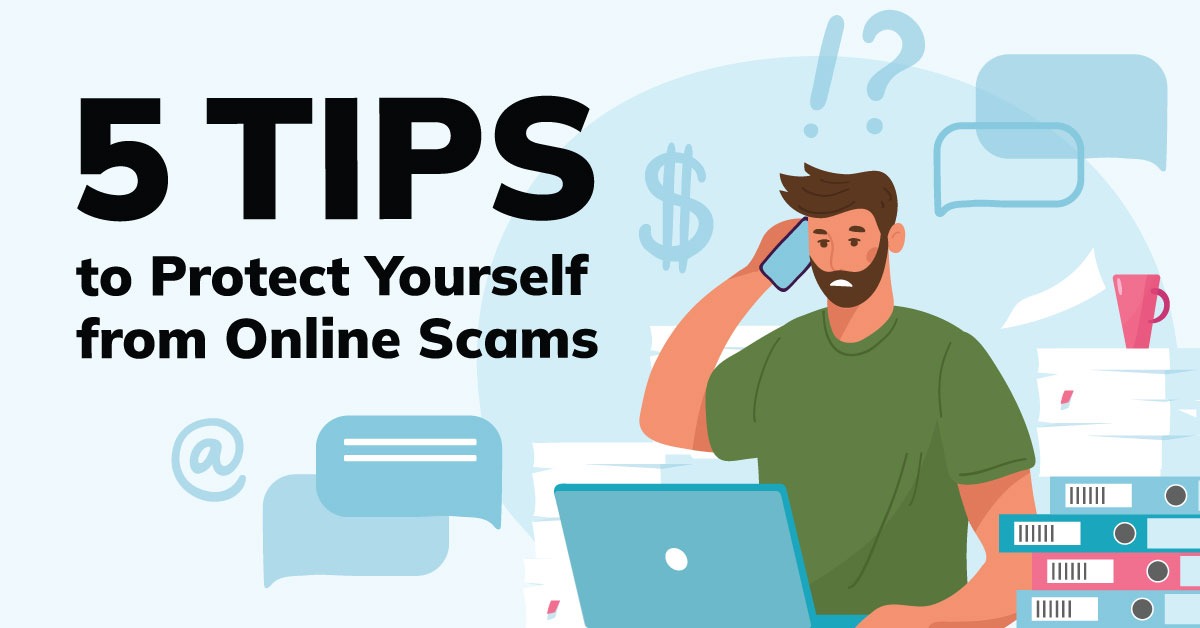Cryptocurrency and bitcoin scams can put your finances and your identity at risk if you don’t know how people can try to benefit from it. Keep reading to learn more about these scams and tips for preventing cryptocurrency scams.
First, let’s take a closer look at the 14 most common crypto scams that you should pay attention to.
1. Fraud with investment or business opportunities
An investment or business opportunity scam often starts with an unsolicited offer, usually to become a cryptocurrency investor, which lures you to a fraudulent website to learn more about an obvious opportunity. As soon as you visit the site, you will be asked to invest and earn money quickly. The site may even contain celebrity endorsements or reviews that are fake.
But once you complete your transaction, the offer will never be realized and you will no longer see your money. You could equate these types of cryptocurrency scams to multi-level marketing schemes or Ponzi schemes. They are called pig slaughter scams because the butcher (scammer) fattens their account, forcing them to invest more money over time before they disappear.
2. Fraudster or fraud with impersonation of another person
Fraud or impersonation is when a cybercriminal impersonates a reliable source in order to convince victims to make a cryptocurrency transaction. This can happen under the guise of government agencies, credit card providers, banks, a service provider, or even a fake celebrity who often email you asking you to make a payment in cryptocurrency.
Keep in mind that the government does not regulate cryptocurrency, and it has not yet become widespread among companies. Therefore, you should be careful when receiving requests for crypto payments by email.

For security reasons, check the source via another communication channel and check the security of the website before completing the transaction.
3. Fraud for the purpose of extortion or extortion
One of the oldest approaches to book fraud, blackmail or extortion, is when you get a message that someone has compromising information about you — be it photos, videos, confidential data, etc. – and they demand that you pay them money, otherwise you get them you disclose it.
This becomes a cryptocurrency scam when a scammer requests payment in cryptocurrency, often because the victim cannot cancel transactions, as well as because of the anonymity that cryptocurrency provides. This complexity and anonymity make it difficult for law enforcement agencies to track fraudulent payments. It is best to delete these messages and report the sender to the authorities.
4. Cryptocurrency Fraud on Social Media
Cryptocurrency fraud on social media is exactly what it looks like: cryptocurrency fraud that occurs through social media. This is often done through a fake social media post or an advertisement requesting payment in cryptocurrency. You can even see how other users respond to a message or leave feedback.
In fact, they may be bots trying to lure you into a scam on social media. The message or message may be received from a friend whose account has been hacked. Alternatively, influencers on social media can promote new and potentially fake cryptocurrencies and encourage users to sign up or send them payments that they could multiply. In some matters, influencers simply connect payments. This is called cryptocurrency fraud by influencers.
Bottom line: Recognize that cryptocurrency is not a widely used payment method, and any intrusive requests for payment using cryptocurrency are probably fraud.
5. Cryptocurrency fraud for free
Gift-giving scams are a mix of impersonation scams and cryptocurrency scams on social media, where cybercriminals trick victims into sending them money by promising that they will multiply the payment.
For example, this may be the matter when a fake celebrity account on a social network publishes a message stating that subscribers who send you a certain amount in cryptocurrency return twice as much. In fact, subscribers send money to scammers directly, never to see your investment again.
6. Fake Apps
As a digital payment method, different cryptocurrencies also have different applications, and cybercriminals can skillfully copy them. In 2021, more than 300,000 fake apps were downloaded that stole banking data from victims. Once users download these fake apps, they can start sending payments directly to the crypto scammer.
7. Cryptocurrency Upload or Download Fraud
Believe it or not, some cryptocurrency scammers directly ask you for your account login details. Here’s how a cryptocurrency upload or download scam works: scammers can ask victims to borrow their account because they need higher limits. In return, the scammer promises to give you part of the income from your investments.

But these gains will never materialize. Instead, the scammers download and empty the accounts of the victims, taking all the cryptocurrency for themselves.
Remember: you should never give access to your account to anyone else, even if you think they are someone you can trust.
8. Romantic Cryptocurrency Fraud
Romantic fraud attracts the hearts of victims through social engineering tactics. How does it work? Cybercriminals play the role of an online love interest and gain the victim’s trust before asking her to send money. As soon as the victim does this, the cybercriminal puts the money in his pocket and runs away.
Romantic cryptocurrency scams use the same approach, but funds are requested in cryptocurrency and they are much more difficult to reverse.
9. Phishing fraud using cryptocurrencies
Another old-school cyberattack, phishing fraud, often occurs via email and involves requesting money. These messages usually come from cybercriminals who pose as reliable sources, which means that phishing scams are similar to fraud by impersonating another person.
In the matter of cryptocurrency phishing fraud, a false payment request is made in the form of cryptocurrency. The news may even come from a cybercriminal who impersonates a cryptocurrency company and announces an initial coin offering (ICO) to look authentic.
10. Fraud in hiring
Similar to investment scams or business opportunities, cryptocurrency scams often begin with an unsolicited job offer that attracts victims to a fraudulent website to learn more about the opportunity.
They often ask victims to pay for training in cryptocurrency so that they can be fully accepted into the company. As soon as the victim makes the payment, the scammer stops all contacts, because he put the money in his pocket without even offering any real work.
11. Fraud using instant credit attacks
In a flash loan attack, a cybercriminal takes out an unsecured loan, using a credit protocol to shift the market in favor of this cryptocurrency. These credit protocols work quickly, so scammers should be able to take out these loans, make a profit, and then throw the coin back into the market, reducing its value.
12. Bitcoin Mining Fraud
In a bitcoin mining scam, also known as a cryptocurrency mining scam in the cloud, someone offers you to rent computing power in a data center that they claim is designed to efficiently mine cryptocurrency. In your commercial offer, you will say that the amount you earn from mining will be several times higher than the rent.
But this is not true. Either the rent will never bring you any money, or the criminal will use it to mine cryptocurrency for himself.
13. Fraudulent Initial Coin Offerings (ICOs)
Cryptocurrency is very popular. Between August 2021 and August 2023, the number of cryptocurrencies available worldwide increased by more than 3,000.

As these new currencies have gained widespread acceptance, scammers have found ways to make money by creating fake cryptocurrencies (or the illusion of a new currency) or inflating an existing currency by offering buyers the opportunity to enter the first floor of an ICO.
14. Fraud with NPFs
Non-interchangeable tokens (NFT) are assets that can represent real or digital goods and the ownership of which is recorded in the blockchain. Over the past few years, the number of NFTs created and sold has increased significantly.
Many of these NFTs are legitimate and allow people to buy unique works of art or other assets, but some scammers have used NFTs to exploit investors.





